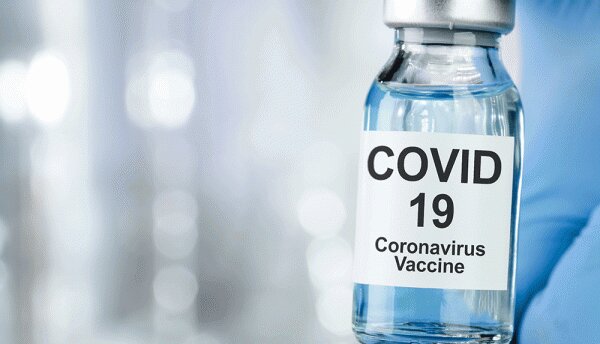Avigan, Japan’s wonder drug, and the race for coronavirus treatment
To date, there is no approved drug for coronavirus disease, yet the Japanese anti-flu Avigan – produced in 2014 – has been emerged as potential treatment for the pandemic.
The antiviral drug, which is also known as favipiravir, has emerged as a potential drug to treat patients infected with the coronavirus in Japan and China. It has been developed by Japanese company Fujifilm Toyama Chemical Company, a unit of Fujifilm Holdings.
In March, the World Health Organisation (WHO) announced a large global trial called Solidarity to collect data on several existing medications and discover whether any can treat the virus.
The study includes thousands of patients from numerous countries. However, it does not include Avigan, which China Kenya, and Egypt have ordered to treat local patients, while in the U.S., clinical trials are being conducted.
Kenyan Acting Director of Public Health Patrick Amoth said the government was in discussion with Japan to receive batches of the antiviral drug.
On March 31, Fujifilm announced the start of a third phase of clinical trial of its drug for coronavirus patients in Japan. The studies will be completed on June 25, but the off-label use to treat the virus continues because the drug is already registered and shows no adverse reactions.
The U.S. Food and Drug Administration (FDA) has given the green light on Wednesday for the country’s first clinical trial of Avigan, involving around 50 or 60 patients with the coronavirus, the Boston Globe reported.
Later on Thursday, Fujifilm Holdings Corp announced it would start the second phase of clinical trials of its anti-flu drug for coronavirus patients in the United States.
The trial will involve 50 coronavirus patients in collaboration with Brigham and Women’s Hospital, Massachusetts General Hospital, and the University of Massachusetts Medical School, according to the New York Times reported.
Fujifilm said Avigan shows anti-viral activities against other RNA viruses, which are known to cause fatal hemorrhagic fever. These unique anti-viral profiles could make it a potential promising drug for the coronavirus disease.
The drug was approved for manufacture and sale in Japan back in 2014, is said to fight influenza by interfering with the virus replication process. Avigan “selectively inhibits RNA (ribonucleic acid) polymerase necessary for influenza virus replication,” Fujifilm explained in a statement.
“Due to this mechanism of action, it is expected that Avigan may potentially have an antiviral effect on the new coronavirus, because like influenza viruses, coronaviruses are single-stranded RNA viruses that also depend on viral RNA polymerase,” the company added.
Earlier in March, the Chinese government said the drug has proven its effective against the novel coronavirus.
“It has a high degree of safety and is clearly effective in treatment,” said Zhang Xinmin, director of China’s National Centre for Biotechnology Development, in a news conference in early March.
The clinical trial was conducted at hospitals in Wuhan and Shenzhen, with 200 patients participating. Test results for those receiving the drug turned negative in a shorter period, and their pneumonia symptoms improved at a higher rate.
These patients tested negative for the virus with a median of four days after becoming positive — much lower than the average of 11 days for those who were not given the medicine, Xinmin told the Guardian.
“The trial also found that X-ray photos confirmed improvements in lung conditions in about 91 percent of the patients who were given the medicine. The number stood at 62 percent for those without the drug.” Xinmin said.
Other drugs under testing
In its Solidarity study, WHO said it includes only about four drugs, but others can be added.
“Until there is sufficient evidence, WHO cautions against physicians and medical associations recommending or administering these unproven treatments to patients with Covid-19 or people self-medicating with them,” it said.
The Solidarity study is testing the efficacy of Chloroquine, Hydroxychloroquine, Remdesivir, and Ritonavir/Lopinavir.
Chloroquine and Hydroxychloroquine were to be left out of the trial until they start grabbing headlines. In March, a report of a WHO working group in March said the widespread interested prompted “the need to examine emerging evidence to inform a decision on its potential role.”
However, in other research on actual Covid-19 patients, the results for Hydroxychloroquine have been quietly much a wash. Two scientists writing for Science Magazine on March 27 said, “Researchers have tried this drug on virus after virus, and it never works out in humans.”
Remdesivir was originally developed by U.S. Gilead Pharmaceuticals to combat Ebola along with other related viruses. It shuts down viral replication by inhibiting a main viral enzyme, the RNA-dependent RNA polymerase.
In the U.S., the first coronavirus patient diagnosed with the virus was given Remdesivir when his condition worsened, the symptoms improved the next day, according to a case report in the New England Journal of Medicine. However, such evidence from individual cases does not prove a drug is safe and effective.
Ritonavir/Lopinavir is a combination drug that is being sold under the brand name Kaletra. It has been tested in SARS and MERS patients, though results from those trials are still ambiguous.
The largest study of a treatment for coronavirus so far with the combination, in China back in January, did not find a benefit.
The last combination drug being tested, according to the WHO, is Lopinavir with Ritonavir plus Interferon beta-1a.


